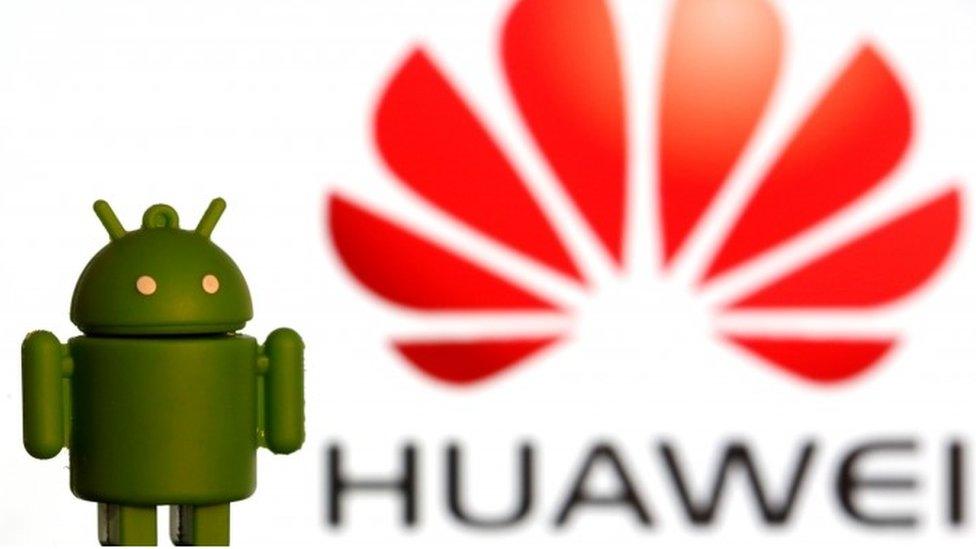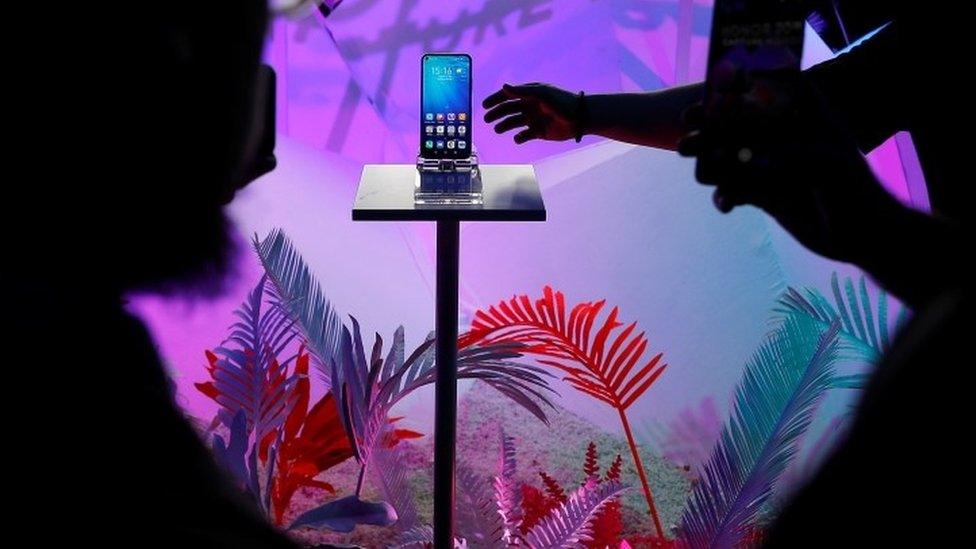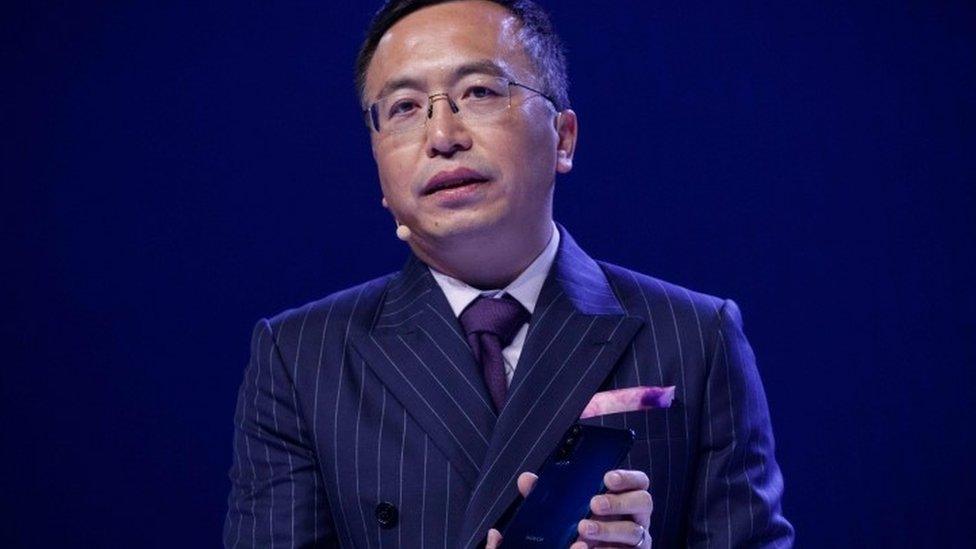Is Huawei in retreat?
- Published

Huawei's access to the Android operating system was restricted by Google on Monday
It is the Chinese tech titan that is number one in telecoms equipment and has soared to second place in smartphone sales.
But after a terrible week in which many of its partners cut off ties, and it found itself at the centre of a war of words between the US and China, Tech Tent asks whether Huawei is now in full retreat.
It was on Monday that the full implications of President Trump's move to add Huawei to a list of firms restricted from trading with the US became clear. Google revealed it was going to comply with the order and that meant Huawei's access to the Android operating system would be restricted and its future customers would not be able to get apps such as Gmail and YouTube.

Stream the latest Tech Tent , externalpodcast on BBC Sounds
As luck would have it, the following day Huawei was holding a big event in London, the launch of the latest device under its Honor brand, which has been hugely successful in winning a young audience for high-spec but affordable phones.
We went along to the event attended by journalists from across Europe and ran into a Huawei fan who had won a competition to attend in person.

The Honor 20 range of smartphones was on show in a week that proved tough for Huawei
Kalpesh Depala told us how much he loved Honor phones and the whole Huawei brand. But even he admitted that the news about Google had worried him and it was security that was his main concern:
"Knowing security breaches that can happen - especially with what happened with WhatsApp - who knows what can happen with Huawei especially if they don't get the new security patches?"
We then sat through a typical smartphone launch, full of breathless descriptions of the Honor 20's capabilities, especially a camera which looked to rival those on far more expensive Samsung and Apple phones.
But in a presentation which lasted for an hour, two words - Google and Android - were notable by their absence. Afterwards the mobile analyst Francisco Jeronimo from IDC chuckled when I mentioned this - but agreed the whole affair was casting a long shadow over Huawei's future in smartphones:

George Zhao, president of Honor, a sub-brand of Huawei, did not mention Google or Android
"Considering the quality of the devices and the prices, nothing has changed," he said. But the retailers he had been speaking to made clear that if the US ban was not lifted by the end of the year, they would not be stocking new Huawei products: "Without being able to offer Google services it will be extremely hard for Huawei to sell any products outside China."
He had thought Huawei was going to race past Samsung into the number one spot in the smartphone market but that now looks unlikely.
Later in the week, the news for the Chinese firm got even worse, with British chip designer Arm telling its staff to stop working with Huawei. While the lack of Google apps has a more direct impact on consumers, our special guest Emily Taylor, from the Chatham House think tank, tells us that the end of collaboration with Arm is more serious in the long term.
"Arm is a major designer for just about every mobile phone designer on the planet," she says. She warns that there is a danger of the mobile industry fracturing if Huawei and other Chinese firms are denied access to Western technology. "This will motivate them to try to stand alone."
Meanwhile, the temperature in the war of words between the US and China is rising. US Secretary of State Mike Pompeo accused Huawei's founder Ren Zhengfei of lying about his company's ties to the Chinese Communist Party and said those ties put American information passing through its networks at risk.
Mind you, remarks by Donald Trump showed how difficult it is to predict how this battle will play out. He first called Huawei "very dangerous" - then said the dispute might be resolved if the US trade talks with China ended successfully.
Mobile-phone buyers used to think about the price and specifications when it came to choosing a new device - now they have to worry about geopolitics too.
Also on this week's podcast:
Virtual assistants like Apple's Siri and Amazon's Alexa often have female voices, We discuss a UN report which says the way they are programmed to respond to flirtatious remarks could reinforce gender stereotypes.
And we hear from the charity urging tech firms to live up to promises to make websites and gadgets accessible to people with disabilities.
